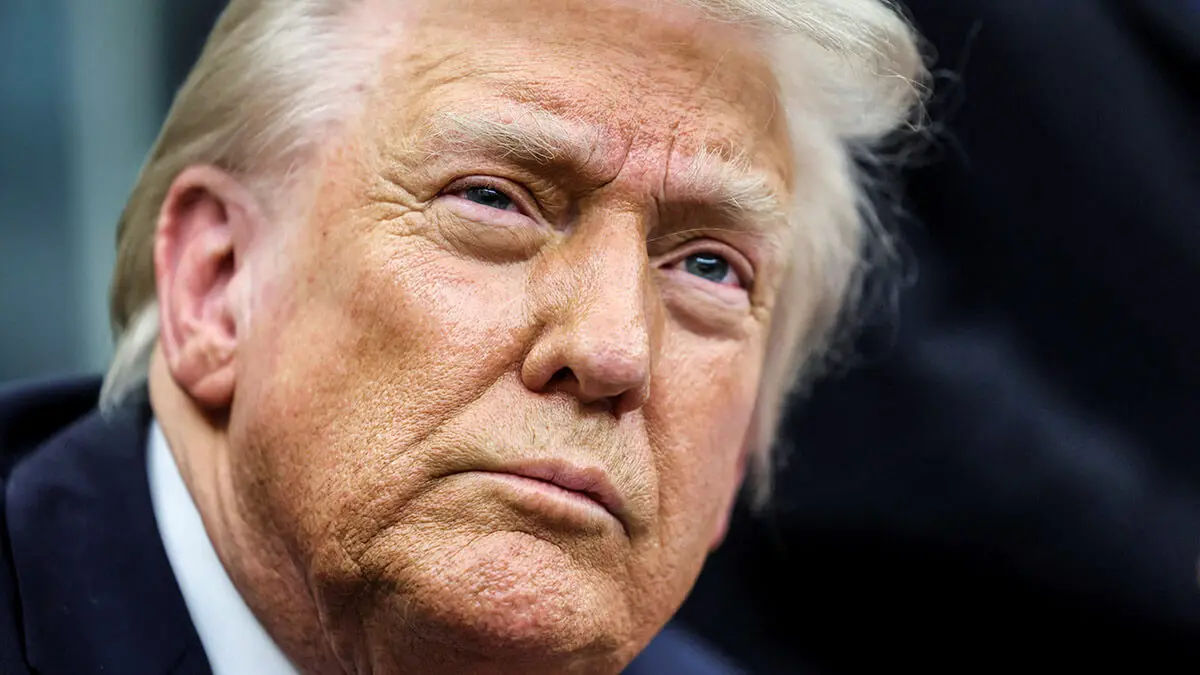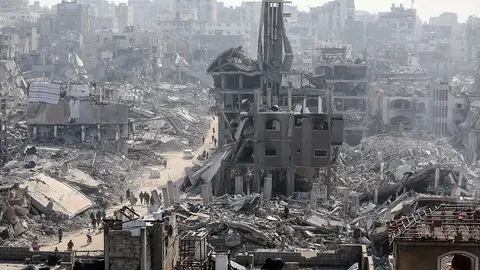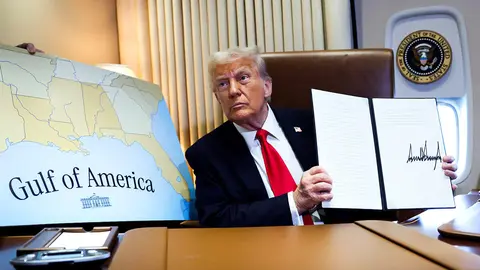Trump's memoirs

Historically, the conflict began in the year 132 AD when the fanatic Simeon Bar Koshba, the Son of the Star, was campaigning with his guerrillas in Judea and Samaria and a Pharisee rabbi, Akiva, identified him as a messiah saviour, thus mobilising the radical zealots, crowded into the ruins of Jerusalem.
The trigger was the founding of Aelia Capitolina, a city that Hadrian conceived as a novel solution to make people forget the destruction of Jerusalem and its Temple at the hands of Titus. It took the Roman legions three years of fierce fighting to quell the rebellion against fanatical Jews, who were resisting in hiding in the caves and tunnels of the Dead Sea and Nabatea. The Jewish rebels of Gaza were executed en masse.
It is possible that Donald Trump is not familiar with the episode. And nor would it be necessary for his advisers to go back so many centuries to explain the complexity of a territory like Palestine, historically open to the influences of empires, civilisations, beliefs and murderous fanaticism. Because the mere observation of the conflict between Israel and its Arab and Palestinian neighbours since 1948 would be enough to reflect on the viability of implementing such drastic and dangerous unilateral measures as that of provoking the transfer of the population of Gaza to a place that is politically indeterminate and indeterminable in international law, in order to extricate the problem of Hamas from the border with present-day Israel.
The Camp David Accords (1979), the first major step in the pacification of post-colonial Arab-Israeli conflicts, were followed by various violent episodes, but also the roadmap of the Oslo process that concluded with the recognition of the Palestinian National Authority in the 1990s. Kissinger, Sadat, Beguin and Carter were succeeded by Bush, Peres, Clinton, Rabin and Arafat, who, with the support of the United Nations and various regional actors, forged a thorny path full of murderous memories.
Islamic fundamentalism and the spurious interests of perverse dictators were in direct opposition to the success of the agreements and Israel became the demonic argument used by terrorist groups to gain followers among Palestinian minorities and those of other origins. But the legitimisation provided by the will of the parties and by international law led on both occasions, Camp David and Oslo, to the implementation of the process.
The actions of mediation and the intervention of the powers in conflicts as complex as those in the Middle East find in international organisations the instruments of support to re-establish order in a region or at a global level.
And, in this sense, Donald Trump's foreign policy drive to revise the international order (revision of agreements, threats to the Criminal Court, new geopolitical interests in Greenland, Panama, the Caribbean, or Gaza), far from strengthening the leadership of the United States and its allied European, Asian and American powers, weakens it. By setting unilateral objectives that clash with certain parameters of the order itself (sovereignty, non-interference) and with some allied interests (free trade in North America, Abraham Accords).
Giving foreign policy a vision more in line with American interests cannot turn the power that inspires and guarantees world order into a revisionist power.
The United States would lose credibility if it did not act in accordance with principles and values that have helped to project its interests in an environment open to competition, but not blocked by the aspirations of a particular Administration. We would enter a period of revisionism like the interwar period when the great powers, the USSR, Nazi Germany, Japan, Mussolini's Italy, demanded territorial, structural and value changes in the face of the growing weakness of the allied powers (France and Great Britain) and the changing international vision of the US.
Revisionist attitudes lead irreversibly to the end of the established order. The current order is defined by competition between powers, but that competition takes place within a framework of sovereignties energised by institutions whose foundation continues to be liberal principles, which have not led us to peace and equitable progress, but which have brought us out of poverty and extermination. And in many cases, out of war.
‘Tired of us, the world would look for other masters, what had seemed sensible to us would be insipid, and what we considered beautiful would be abominable,’ said Hadrian as he left the territory he had reorganised: Palestine.



